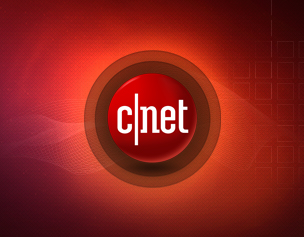
Best Savings Accounts for Kids and Teens - CNET

Alliant Credit Union
- 3.10% APY with a $100 minimum balance
- No fees
- Comes with an ATM card
- Must be a member to open an account
- For ages 12 and younger
Alliant Credit Union’s Kids Savings Account pays a very competitive 3.10% APY once the account reaches an average daily balance of $100. It comes with a few parent-friendly perks, including tracking your child’s account online and mobile check deposits via the app. The account also comes with an ATM card to help kids learn how to make deposits and withdrawals at ATMs.
It’s solely designed for children 12 years old and younger. When your child turns 13, they’ll be eligible for the Alliant Teen Checking Account, which comes with a savings account.
However, you’ll need to be an Alliant Credit Union member to open an account. The easiest way to qualify is to become a member of Foster Care 2 Success; Alliant will cover the one-time $5 membership fee.
Read our Alliant Credit Union banking review.

First Internet Bank of Indiana
- 0.80% APY
- No fees or minimum balance requirements
- Requires a minimum deposit of $100
- For ages 18 and younger
First Internet Bank’s Tomorrow’s Tycoons account checks all the most important boxes of a kids’ savings account: no fees and the ability to earn interest. Even though the account doesn’t come with an ATM card and it requires a $100 minimum deposit, the account also pays a 0.80% APY. It converts to a Free Savings account when your child turns 18. Until then, a parent or legal guardian must be a joint account holder. And keep in mind that First Internet Bank is an online-only bank, so you’ll need to be comfortable managing the account online with your kids.

Capital One Bank
- 0.30% APY
- No fees
- No minimum balance requirement
- For ages 18 and younger
Capital One’s 360 Performance Savings account is already on our list of the best savings accounts for grown-ups, and its Kids Savings Account can make a great starting point for your children.
There are no fees or minimum balance requirements, and you can even show your kid how in-person banking works at one of Capital One’s branches, ATMs or cafes. While the APY is only 0.30% that’s still much better than other big banks.. A few pieces we love about this account: You can link your external bank account to your child’s savings account to schedule sending their allowance and still make regular deposits. We also love that parents can create multiple accounts for different goals and still use the Capital One app to manage their savings.
Read our Capital One Bank review.

Bethpage Federal Credit Union
- 5.00% APY on balances up to $1,000
- $5 minimum deposit
- No monthly fees
- For ages 20 and younger
Bethpage Federal Credit Union’s Student Savings Account is available for kids up to 20 years old, so this account can serve your child for a long time. However, digital banking is only available to children ages 13 and up.
You’ll need a minimum $5 deposit to get started and there’s a $1,000 ATM withdrawal limit which may be worth keeping in mind if your child is saving toward a big goal. Its 5.00% APY is certainly a compelling offer, but you’ll only earn this on up to a $1,000 balance. However, account holders still do earn interest on bigger balances — between 1.39% and 5.00% on balances between $1,000 and $10,000. Even though Bethpage’s physical locations are limited to New York, you can open and manage an account digitally anywhere across the US — just keep in mind the 13 and older limitation for digital banking.

PNC Bank
- No minimum deposit
- No monthly fees for account holders younger than 18
- Offers interactive learning experience with Sesame Street characters
- For ages 18 and younger
PNC’s S is for Savings account sneaks on to our list due to a design that helps make learning about budgeting fun. Let’s face it: Your kid may not be all that interested to hear about your perspective about saving, but they’ll be more willing to listen to Elmo, Cookie Monster and other familiar Sesame Street characters talk about cash. You can also teach them about money management at one of PNC’s 2,600 in-person branch locations or manage the account entirely online.
There’s no minimum deposit and no monthly fee for anyone under 18 years old. However, there is one drawback: The interest rate is a paltry 0.01% for balances of at least $1.00. But that’s not too surprising since the best savings rates generally aren’t found at big banks.
Although you can technically keep this account once your child turns 19, Although you may have to pay a $5 monthly service fee if you don’t meet other minimum balance requirements. But the fee is waived for children 18 and younger.
Read our PNC Bank review.

